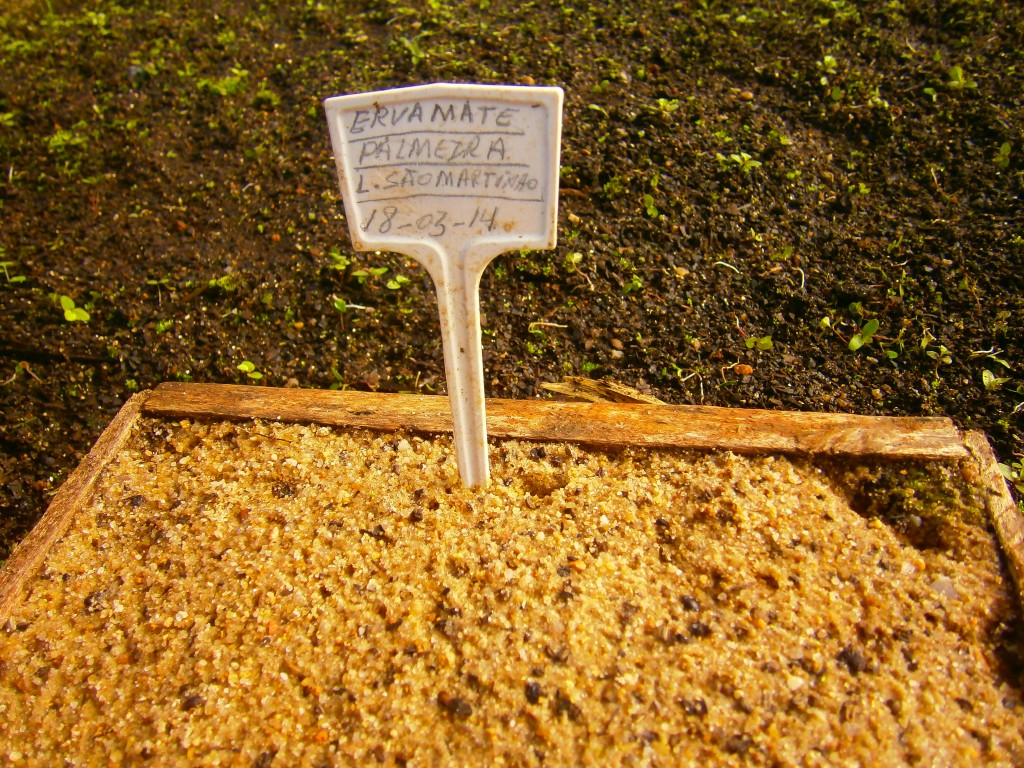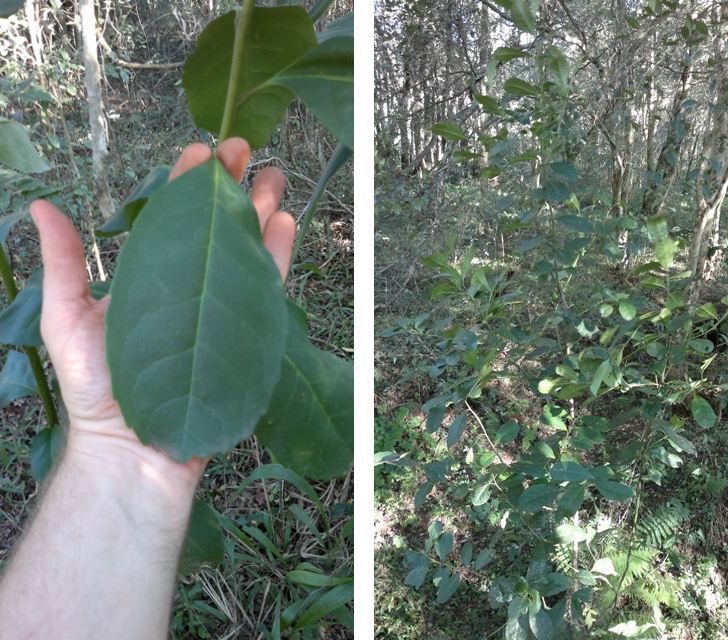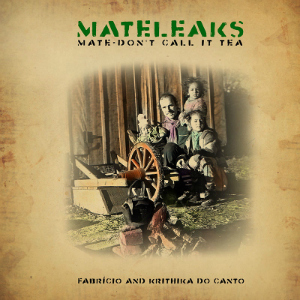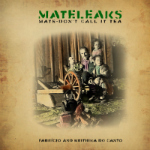Yerba Mate and Erva Mate comes mostly from monoculture, and we at Meta Mate strive to produce the highest quality mate in the most sustainable way. As opposed to reforestation as monoculture, Meta Mate has a pilot project to plant mate as permaculture. We are proud to have Club Mate the support of Club Mate for our reforestation efforts. In March 2014 thanks to the
Brauerei Loscher GmbH & Co. KG we were able to travel to Brasil to establish contact with local institutions and collect Mate seeds from carefully selected trees.
This is one of the initial steps of a long term project that began in 2011, when in conjunction with the Food Science and Techonolgy Department from the
Beuth Hochschule für Technik Berlin we accompanied a research project for a Master’s study named
Establishing Brasilian Mate products in the German Market – The chemical and sensoric properties. The study was made possible through the support of the
Transfer BONUS der TCC (Technologie Coaching Center) from the IHK Berlin. We gained lots of knowledge through the project regarding different mates, and were especially able to identify a softer taste and higher anti-oxidant capacity in wild mate.
In 2012 we had our first trials at cloning this species and in 2013, together with the Hochschule für nachhaltige Entwicklung Eberswalde and researchers in Brasil we were able to create a concept of recultivation. We have launced a pilot project on 3 hecters of land where we intend to return the currect soya fields to their original forest condition by creating a Mate Forest Garden in order to return a piece of biodiversity to the area.
The possibility of Permaculture including the native woods for drying mate is an attempt to provide a better input-output relationship in the production of erva mate, that up to today relies on Eucalyptus as the source of energy to dry. Eucalyptus is considered very harmful for the environment and is destroying Community Supported Agriculture (CSA) in the region, leading to a rural exodus in south Brazil. An introductory evaluation of the ecological foot print of the yerba mate production is exposed by Prof. Dr. Philomena (Professor of Ecology at University of Georgia, USA and Founding Member of the Associação Mate in Brazil).
Click Here to download the document: METAMATESTATEMENT
.
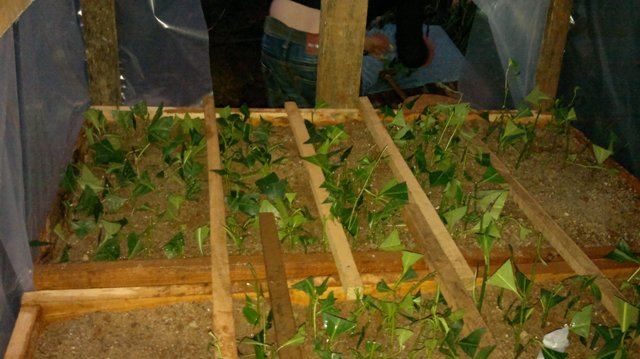
Similar to the permaculture concept, we will let all native species grow together, as well as the mate and this will provide the proper setting to once again bring back the endangered Guabiroba and Pitangeira trees whose aromatic woods were traditionally used to dry the Mate. Our goals are long term to leave a present for future generations where man and nature can exist in harmony.
In order to execute the project and plant the first trees, the
ICMBio presented us with 40 Araucaria saplings which will grow to create shade under which the Mate trees thrive.
Our reforestation tests started in 2012 with Ricardo planting the first Mate saplings in his forests. Erveiras with a larger leaf size, as shown below, have a higher anti-oxident capacity according to our studies by the Beuth University.

Our longterm Reforestation project where eventually sections 1, 2, & 3 will have native Mate forests like sections 4 & 5
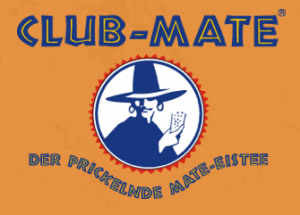
Germany’s favourte Mate drink is supporting our reforestation project.
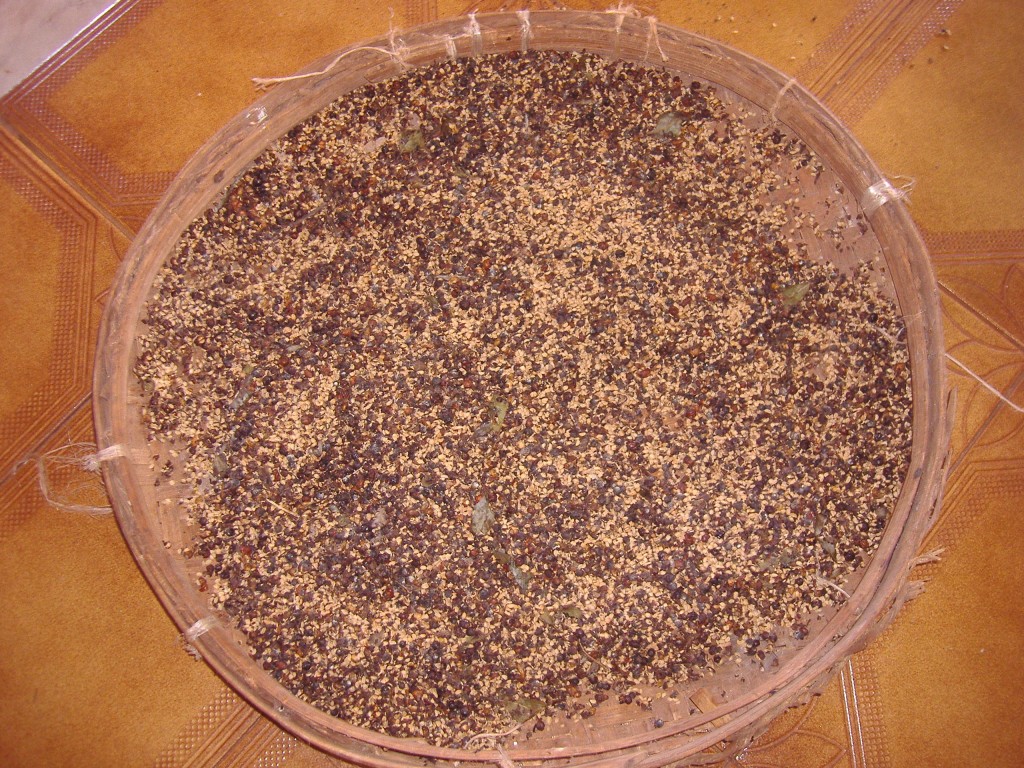
We collected seeds from carefully selected mate trees at the right time of year to reproduce.


